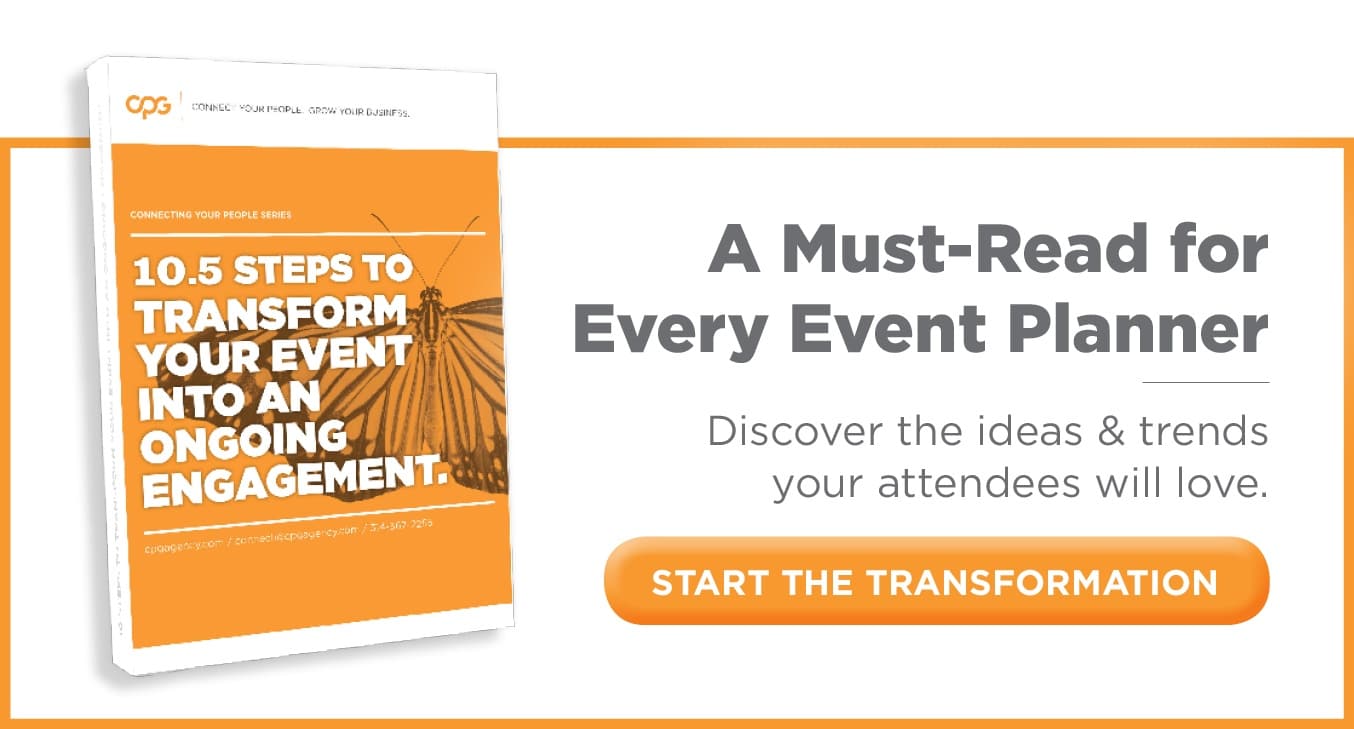Number of Attendees
Having a solid understanding of your crowd size is crucial when you start working out the logistical kinks surrounding your event. This obvious-but-overlooked number has a large impact on everything you do. Higher attendance rates, for instance, demand a larger budget and advanced planning. Fewer people – not so much.
One of the most important things attendance rates impact is the size and style of your venue. You want your venue to comfortably seat all of your attendees because if your guests feel crowded and uncomfortable, you can kiss event success goodbye.
And let’s not forget about catering! Determining how much food to order for an event can be a difficult task because you want to cater enough food to ensure that everyone gets their fair share. The last thing you want are hungry attendees fighting over the last piece of cake. But, in the same breath, you don’t want to create waste by ordering too much. By reviewing event data from previous years, you gain a better understanding of what quantities of food to order.
Location and Venue
Nowadays, corporate event attendees expect to be wowed with an experience like no other.
This means traditional spaces just aren’t cutting it anymore. Your attendees’ experience determines the success of your event so it’s important to make it as impactful as possible. Get creative here! You can easily transform the event experience by thinking outside of the conference center.
After sitting inside a hotel convention center all day, your attendees will jump at the opportunity to participate in fun, offsite breakout sessions and team building activities. Some unique locations to consider are rooftop bars, breweries, art galleries and vineyards.
Whichever venue you choose, make sure to take full advantage of all the unique experiences your host city has to offer. These micro-experiences will make your event one to remember and promote attendee engagement.
Registration
Event registration is an unavoidable logistic, but that doesn’t mean you can’t use it to your advantage.
First of all, you can boost pre-event engagement by setting up your registration system months in advance. Then your attendees can begin signing up for sessions and events way ahead of time.
Whether it’s through email registration or your mobile event app, this will help you get a jump start on marketing opportunities. You can use this time to suggest other sessions your guests should attend based on what they’ve already signed up for or you can discuss topics they’re interested in.
The real fun begins once your attendees arrive at the event.
This is a great opportunity to make a strong first impression by getting creative with your sign-in areas. If your conference has a theme, why not tie it in to your registration? For example, if your event has a carnival theme, you can design the sign-in desks to look like old fashioned ticket booths and hand out ticket stubs to your attendees.
Keeping your branding consistent throughout all aspects of the event, even the registration areas, is important. This will help make the sign-in desks more recognizable and your attendees will know exactly where to go to register. By paying attention to the small details, you can set the tone for the attendee experience right from the start and get everyone excited for what’s to come.
Food and Beverage
When attending an annual conference or meeting, guests tend to gravitate towards the food and drink stations. Because who doesn’t love free food?
But corporate events don’t have the best reputation when it comes to promoting healthy habits. Along with there being heaping amounts of food and drinks available, the snack stations typically consist of foods high in calories and sugar. This encourages attendees to indulge more than normal and the higher sugar counts can lead to midday crashes.
To avoid this all together, replace cheese and donut trays with fresh fruit and veggies platters. You can also coordinate with on-site vendors to provide healthy snack booths throughout the event location. Another element to consider is your catering company. By hiring a company that commits to using locally grown food, the produce will be more fresh and you can provide your attendees with food they can feel good about.
Download Our eBook: 8 Fundamentals of an Internal Communications Strategy
If your people are sending out the “whatever” vibes, it’s time to get back to the basics. Make sure your internal communication strategy is following 8 fundamentals to cultivate an engaged workforce aligned with your company’s success.
Improve Your Event Logistics Strategy
Adding design thinking to your corporate event logistics strategy will have a serious impact on your attendee journey.
By overlooking even the most minor logistic, you run the risk of there being hiccups or miscommunication onsite. After months of planning and coordinating, a corporate event planner’s only wish is that the event is smooth and successful. To engage attendees and achieve ROI, logistics management is a fundamental aspect of event planning.




